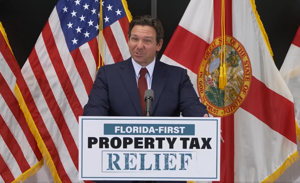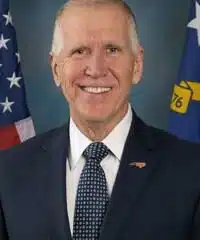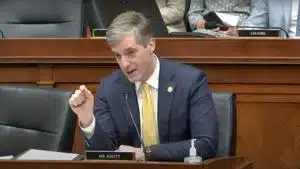(The Center Square) — President Donald Trump is visiting the first large-scale state-run deportation facility in the country in the Florida Everglades on Tuesday morning.
In addition to Florida having the most state agencies and law enforcement entities participating with Immigration and Customs Enforcement officers and being the first state to launch a program to protect ICE officers, it’s also the first to build a massive deportation facility to support Trump’s deportation efforts.
The president will meet with Gov. Ron DeSantis and Attorney General James Uthmeier who proposed the location and construction of the facility.
U.S. Rep. Byron Donalds, Department of Homeland Security Secretary Kristi Noem, Immigration and Custom Enforcement Acting Director Todd Lyons and Florida Division of Emergency Management Executive Director Kevin Guthrie will also be in attendance.
Two weeks ago, Uthmeier proposed that the Dade-Collier Training and Transition Airport be used to assist with ICE deportation efforts. The 30-square mile airport owned by Miami-Dade County is located roughly 60 miles east of Miami near the Everglades National Park. Its 10,000-foot-long asphalt runway is used for military training exercises and was intended to be part of Miami’s new airport before a public outcry halted construction in 1970.
“Florida’s been leading on immigration enforcement, supporting the Trump administration and ICE’s efforts to detain and deport criminal aliens,” Uthmeier said. “The governor tasked state leaders to identify places for new temporary detention facilities. I think this is the best one, as I call it Alligator Alcatraz.”
“It presents an efficient, low-cost opportunity to build a temporary detention facility because you don’t need to invest that much in the perimeter,” he said. “If people get out, there’s not much waiting for them other than alligators and pythons. Nowhere to go, nowhere to hide.”
He said the facility would be ready within 30 to 60 days after construction, with the potential to house 1,000 criminal foreign nationals.
However, the first detainees are expected to arrive as early as Tuesday, and the site will be able to hold up to 3,000 at a time, Gov. DeSantis said.
In a preview with Fox News, DeSantis explained, “the state of Florida is all in on President Trump’s [mass deportation] mission.” In an effort to help federal agents with processing and staging removal operations, the state identified the airport as a base of operations.
“There needs to be more ability to intake, process and then deport,” DeSantis said. “We’ve got a massive runway where any of the federal agencies want to fly these people back to their home country, they can do it in a one stop shop.”





















































